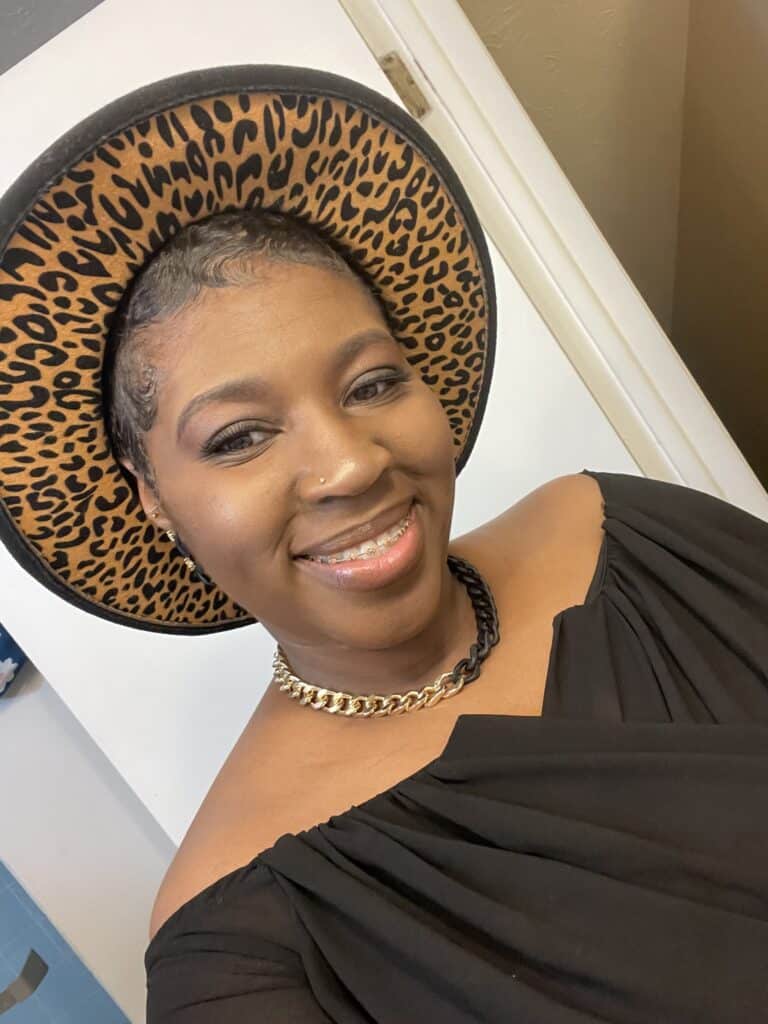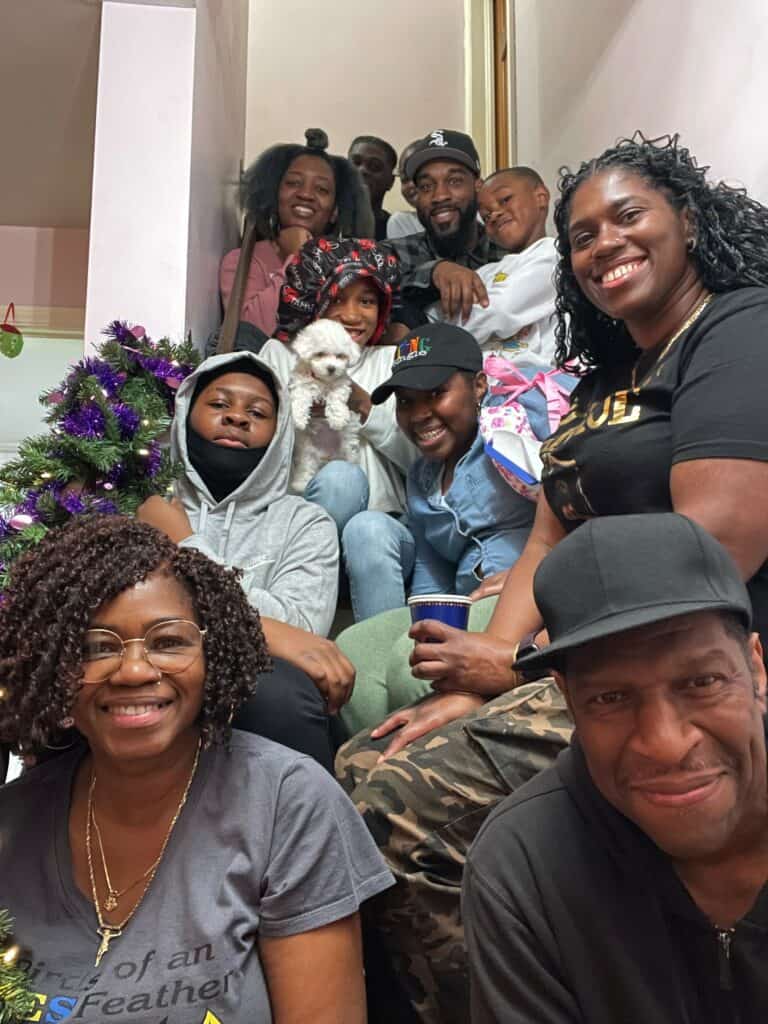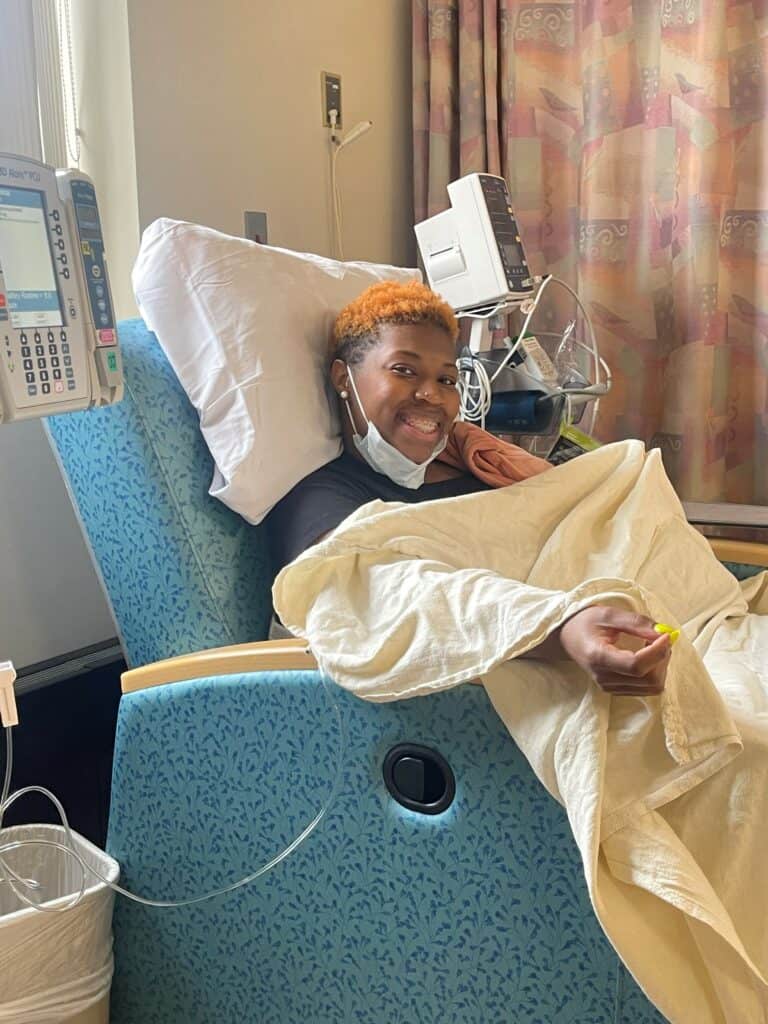
Breast cancer screening and early detection play an important role in your health. Screening tests can help detect breast cancer at an early stage when the chances of survival are highest. Janay Bailey, a mom and hairdresser, learned she had breast cancer in early 2023. After treatment for breast cancer, she’s on her way to getting her life back. This is her story in her own words.
In 2017, when my son was 6 years old, I was still producing a low amount of milk, but it was a greenish-brown color. It turned out I had a condition called intraductal papilloma, a noncancerous tumor that grows in the milk ducts of the breast. I did not have any treatment.
Then, six years later, I discovered a lump in my left breast. It was nearly the size of a golf ball. I reached out to my doctor immediately. After weeks of testing, I learned I had stage 2 triple negative invasive ductal carcinoma. While it was detected relatively early, it was very aggressive. I knew the road ahead would be tough, but I had my faith and believed God would lead me.
By round five of 16 chemotherapy treatments, the lump was nearly impossible to feel. By the end of chemo, a breast ultrasound and MRI revealed that the mass was totally dissolved. I figured surgery should be a breeze.


My surgery was on a morning in mid-November, and before leaving for the hospital, I randomly selected a prayer card that said, “Keep me safe, Lord. For You are my refuge.” Shortly after reading it, my Spidey-senses started tingling and I knew something was off. It wasn’t until the surgical team stepped out of the pre-op room that I tearfully confessed to my mom that I felt like something was wrong. We talked and agreed that it was just my anxiety.
The next thing I remembered was waking up in the middle of the night with no peripheral vision and everything in front of me a blur. When I went to reach for whatever was in my mouth, I realized my wrists were restrained and I knew I wasn’t at home, but in the intensive care unit. I had no idea what was happening.
I woke up again in the daytime with a pen and a stack of paper on my chest filled with notes that I obviously had been using to communicate with family and the medical staff the night before, but I had no recollection on my end. Once the tubes were removed, I was informed that within 15 minutes of surgery, I went into anaphylactic shock due to an allergy to a dye. My blood pressure plummeted, they lost my pulse and my surgeon had to do nine minutes of chest compressions to bring me back.
The only thing they had had time to do during my surgery was the incision in my underarm, so I had to make the decision to try surgery again. My faith went into overdrive, and we rescheduled for a month later, without the use of the dye, of course.
The morning of my surgery, take two, I pulled another random prayer card that read, “By His wounds, you have been healed.” Once I read that, the anxiety left my body, and I knew I would be ok. I woke up in the recovery room and cried tears of joy for the successful procedure.
I finished radiation therapy in February and my immunotherapy treatments are coming to a close. I’m slowly getting my life, body and career back. My maternal grandmother passed in 1981 from breast cancer that metastasized to her lungs. She resisted treatment because cancer was a taboo subject, so I am sharing my story for her and for me. My story isn’t over yet – it’s still unfolding.
Whether someone is preparing for their first mammogram or wants to know more about follow-up tests after and abnormal screening test, your support helps Komen provide the information they need to take charge of their health. Learn more about breast cancer screening and early detection.
Statements and opinions expressed are that of the individual and do not express the views or opinions of Susan G. Komen. This information is being provided for educational purposes only and is not to be construed as medical advice. Persons with breast cancer should consult their healthcare provider with specific questions or concerns about their treatment.



